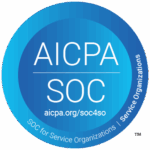- 3 Mins

OVERVIEW HSA
A Health Spending Account (HSA) is a perk for employees that provides compensation for various health and dental costs, typically covering expenses beyond those included in a conventional, fully insured plan with Extended Health Care (EHC) coverage.
The eligible expenses under a HCSA are determined by the Canada Revenue Agency (CRA). HSAs are a tax-deductible benefit, and the benefits are received tax-free. It is especially meaningful for any SMEs, which allow them to turn the family’s health, dental and vision expenses into a tax deduction, potentially saving them thousands of dollars.
HSA IN ACTION
The best way to think of a HCSA is like a bank account
- Each employer (and their eligible dependents) will fund their employees’ HSA.
- The employer provides a fixed amount for each employee annually.
- Employees have the freedom to utilize the HSA funds in a manner that aligns with their needs.
For example, a plan member who needs new glasses and an eye exam can use their HCSA for that, but their coworker with 20/20 vision can instead use their dollars for dental care work.
It’s important to note that a HSA is a pay-as-usage model, so employers will only pay for what plan members actually use.
BENEFITS OF HSA
| Employer | Employee |
| Employer contributions are not subject to employment taxes (i.e., WCB, EI, CPP).Allowing employers to provide coverage for what’s most valuable to each person.The employer determines the amount to allocate to each employee within a class based on types. | Employees enjoy the freedom of spending the HSA funds to best suit their needs. Filling Claims electronically which eliminating the need to submit a paper claimBalances can be saved for future costs. If don’t use the funds, they roll over into the next year. |
HSA BECOME POPULAR IN EMPLOYEE’S BENEFIT PLANS
In 2022, an increase of 48% plan sponsors included a HCSA in their employee benefits plans, compared to 31 % in last year. Moreover, growth remains strong in all company sizes. Large employers with 500+ employees are increasingly likely to offer HCSAs than small employers (73% vs. 42%),
Why leads to this popularity
HSAs are described as adaptable financial tools that allow individuals to use allocated funds for various medical expenses, enjoy tax benefits, and benefit from incentives offered by employers. Employers can also prioritize their coverage for employee’s health expenditure. Overall, HSAs’ multifaceted nature in enabling individuals to effectively manage and save for their healthcare expenses.
HCSAs are quickly becoming one of the fastest-growing benefits capable of providing this crucial element of choice.
Health expenditure has significant rise in Canada. In 2021, total health spending in Canada was around $208 billion, which is roughly $8,019 per person. In fact, Canada’s national health expenditure is trending upwards alongside the rising cost of drugs , putting more cost on Canadians than ever before. HSA is ideal choice to offer reimbursement for these expenses
Between 1997 and 2009, healthcare expenditures saw a notable surge across all Canadian households. Yet, the most pronounced escalation, amounting to 63.2%, was observed among households falling within the lowest income bracket.
94% of plan members acknowledge the significance of Health Spending Accounts (HSAs) as integral components of their health benefits plan;
82% of plan members lacking access to an HCSA express a desire to have one.
Sources:
- Benefits Canada Healthcare Survey (2022)
- Canadian Institute for Health Information (2021)
- Statistics Canada, Trends in Out-of-Pocket Health Care Expenditures in Canada, by Household Income, 1997 to 2009






